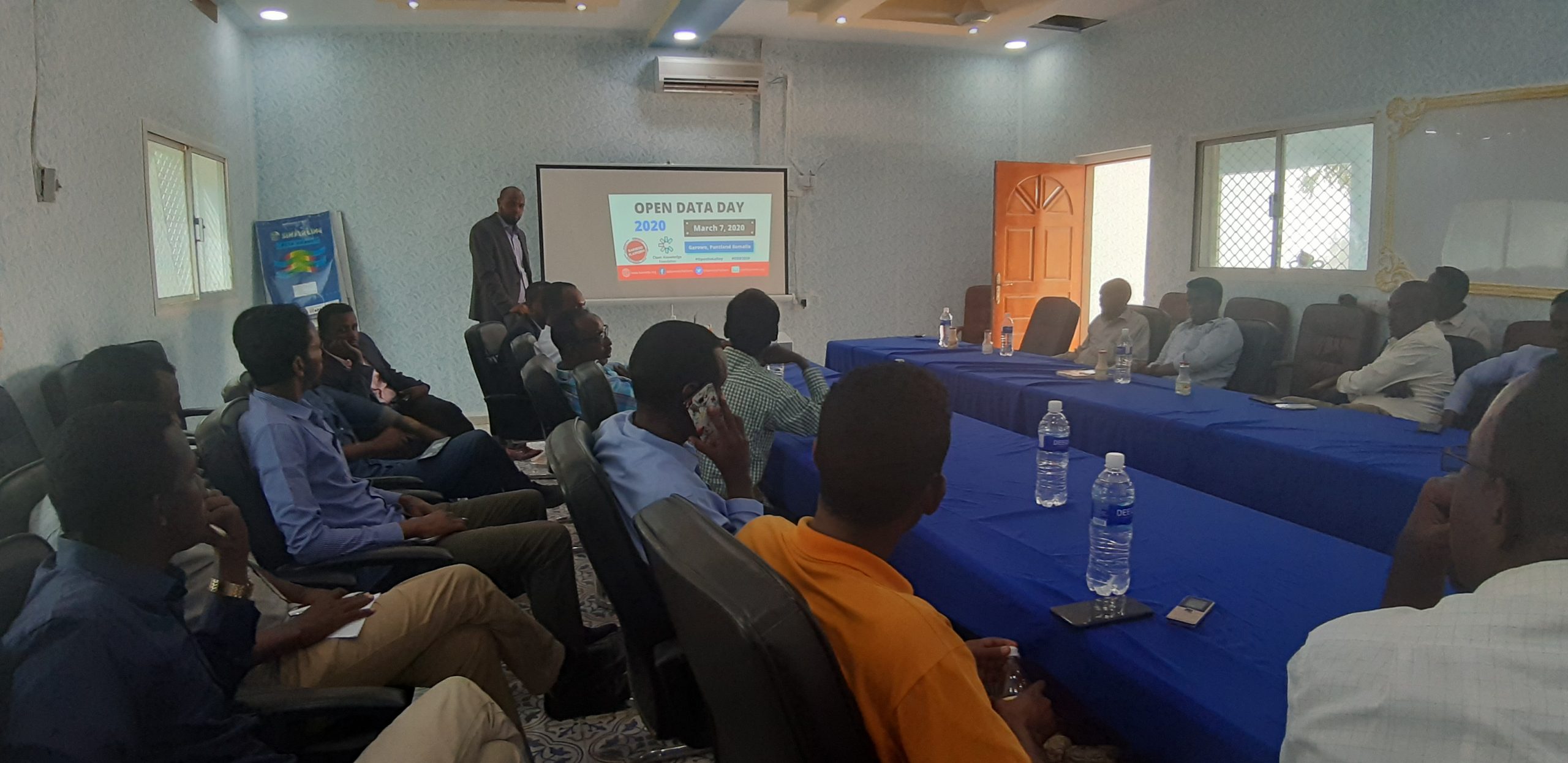On Saturday 7th March 2020, the tenth Open Data Day took place with people around the world organising over 300 events to celebrate, promote and spread the use of open data. Thanks to generous support from key funders, the Open Knowledge Foundation was able to support the running of more than 60 of these events via our mini-grants scheme.
This blogpost is a report by Bareedo Platform in Somalia who received funding from the Open Contracting Partnership to encourage uptake of local public contracting data.
On March 7 2020, Bareedo Platform organised a commemoration of Open Data Day under the theme of “Encouraging uptake of local public contracting data in Somalia” in Garowe, Puntland, Somalia. The event was joined by 35 participants from the government, media, civil society organisations, private sector and academic institutions.
Before the start of brainstorming and discussion, the participants received brief presentations of the concepts of open data, an introduction to the Open Contracting Data Standard, and how such efforts can promote transparency and integrity in the public procurement system.
In order to dive in the event’s theme, participants unanimously agreed the following topics to be basis of the discussion and a highly participatory approach was designed, encouraged and used during the interactive discussion:
- Facts, challenges and opportunities
- How far contracting and procurement data is open and what are the limitations?
- Adoption of open contracting system and policies
While having interactive discussion of the agreed topics, participants identified the following challenges, strengths and opportunities and came up pertinent solutions:
- Somalia is among the world’s most corrupt countries, does not adhere to international initiatives on open data and open contracting and, for those reason, there is no open contracting or procurement data available to the public.
- The existing Public Procurement Law is inconsistent with open contracting standards which is another factor hindering openness and competitiveness of the contracts. Therefore, participants stressed amendment as the foremost step to encourage free and open competition and value for money in line with internationally and nationally agreed standards and regulations. To achieve this, a working group was established with members from the tender board, private sector and civil society with the intention of sending an open paper to the legislative calling for local laws to be amended.
- The current public contracting and procurement system is paper-based and scattered which means every public institution carries out its own contracting or procurement, with few disclosed. For instance, nearly 1,200 contracting and procurement activities were in the government’s annual plan in 2019, but less than 291 of those were advertised publicly while all others were processed behind the doors.
- Public Tender Board, the mandated government body supposed to standardise the government’s procurement system and compile data and documents, is weak and lacks the necessary capacity and experience to adopt the needed reforms. Therefore, there is a need to strengthen the capacity, Open Contracting Data Standard familiarity and open data experience of the Public Tender Board.
- Poor civic participation and citizens’ limited knowledge of open contracting as a concept is a concern that need to be addressed by educating citizens on open data, engaging media through training and creating media awards which recognise excellent reporting on key issues in public contracting and procurement.
Participants shared lessons, practices and recalled several major infrastructure projects which either failed or were delayed by poor contracting practices. One example was the rehabilitation of the main road connecting Garowe and Galkacyo tows in Somalia.









